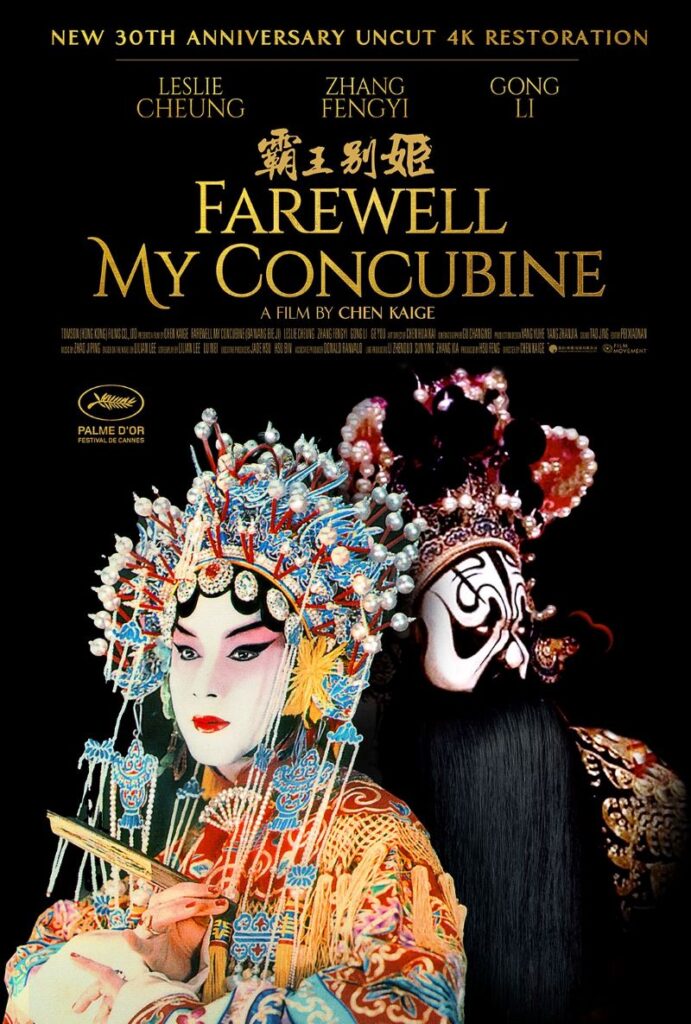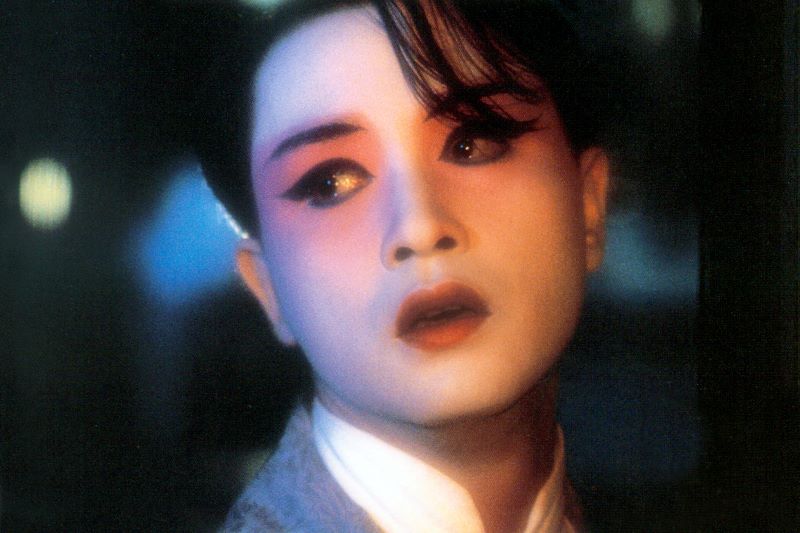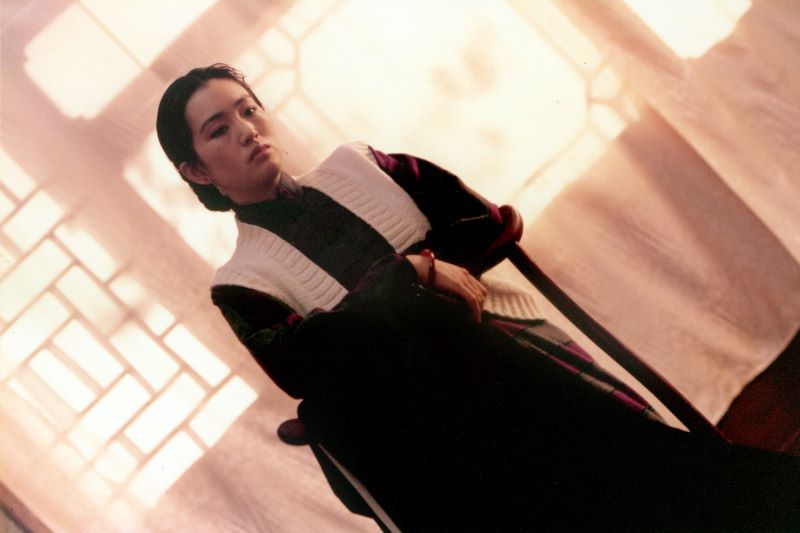
In celebration of its 30th anniversary, Chen Kaige’s searing epic is returning to U.S. theaters with a new 4K restoration of its complete, uncut version. At nearly three hours in length, the uncut version adds 20 minutes of footage, appearing on U.S. screens for the first time ever. The additional footage melds perfectly with the original cut, to the point that I really couldn’t spot any difference between the new restoration and my recollection of the original theatrical release.
The film follows the monumental changes in Chinese culture between the 1920s and 1970s as viewed through the microcosm of a Peking opera troupe. Dieyi and Xiaolou join the rigorous opera troupe as young boys, discarded by their parents and subjected to abuse at the hands of their overbearing instructors. Their shared trauma leads to a lifelong bond between the boys, especially as they train to be lead co-stars in continuing productions of the titular opera. The naturally effeminate Dieyi is cast in the female role of concubine, with Xiaolou as the masculine warlord. Like his concubine character, Dieyi is hopelessly in love with Xiaolou, while Xiaolou is able to leave his character on the stage and ultimately falls for and marries a local prostitute, setting up a decades-long love triangle.
The story paints the opera as an unmoving rock in the chaotic, fast-moving stream of Chinese culture at large. The historical regime changes can be a bit confusing, both for their frequency and their lack of explanation. Power moves from the early days of the Republic of China, through Japanese occupation, to the rise of the Kuomintang and the sea change of the Cultural Revolution, while the performers continue acting out their centuries-old opera even as their audience changes. Dieyi lives for his role and Xiaolou, with no regard for political movements or his own self-preservation. Meanwhile, Xiaolou is fully cognizant of societal changes and eager to stay in the good graces of each new regime, even at risk of destroying his oldest personal relationships.

The film has lost none of its power over the past three decades, and is actually more poignant now in light of Cheung’s tragic real life. It’s impossible to watch the film now without drawing parallels to Cheung’s own fateful journey as a trailblazer in queer representation in Chinese entertainment, primarily via this role and his work in Wong Kar-wai’s Happy Together. There’s no other prominent Hong Kong actor who could have measured up to Cheung’s towering achievement in this film, especially because his own story bears similarity to his character’s. Cheung embodies the role with the sense of someone who has viscerally experienced Dieyi’s life, giving himself over so fully to the character that the line between performer and role completely disappears.
Cheung’s indelible performance is so masterful that I had completely forgotten that the most world-renowned actress of Chinese film, Gong Li, also co-stars and shines nearly as bright. As the prostitute who tries to go straight as Xiaolou’s devoted wife, her character endures much of the same social stigma as Cheung’s Dieyi, always seeming to have an asterisk by her name in any respectable social setting. Although her character can at times feel like it’s been shoehorned into the plot just to give her formidable star power some screen time, Li is an undeniably potent presence who adds to the overall strength of the film.

From a technical standpoint, the restoration isn’t quite as revelatory as I hoped, with most scenes still somewhat hazy and faded. The glamour of the opera is a bit lost in the bland lighting, making the results perhaps more truthful to its historic era at the sacrifice of showstopping cinematography. Chen keeps his camera tight on his stars in the film’s mostly interior settings, so there’s little room for sweeping vistas to add to its epic scope. On the plus side, that intense focus on the characters allows viewers to catch every nuance of expression across the tortured visages of Cheung and Li. You will feel the pain of their characters, achingly conveyed by their superb performances.
After opening at New York’s Film Form last weekend, Farewell My Concubine bows at the Nuart in Los Angeles and Laemmle Glendale starting this Friday, September 29th. Additional markets will follow through the end of November. For more information and theaters, visit the Film Movement website here.